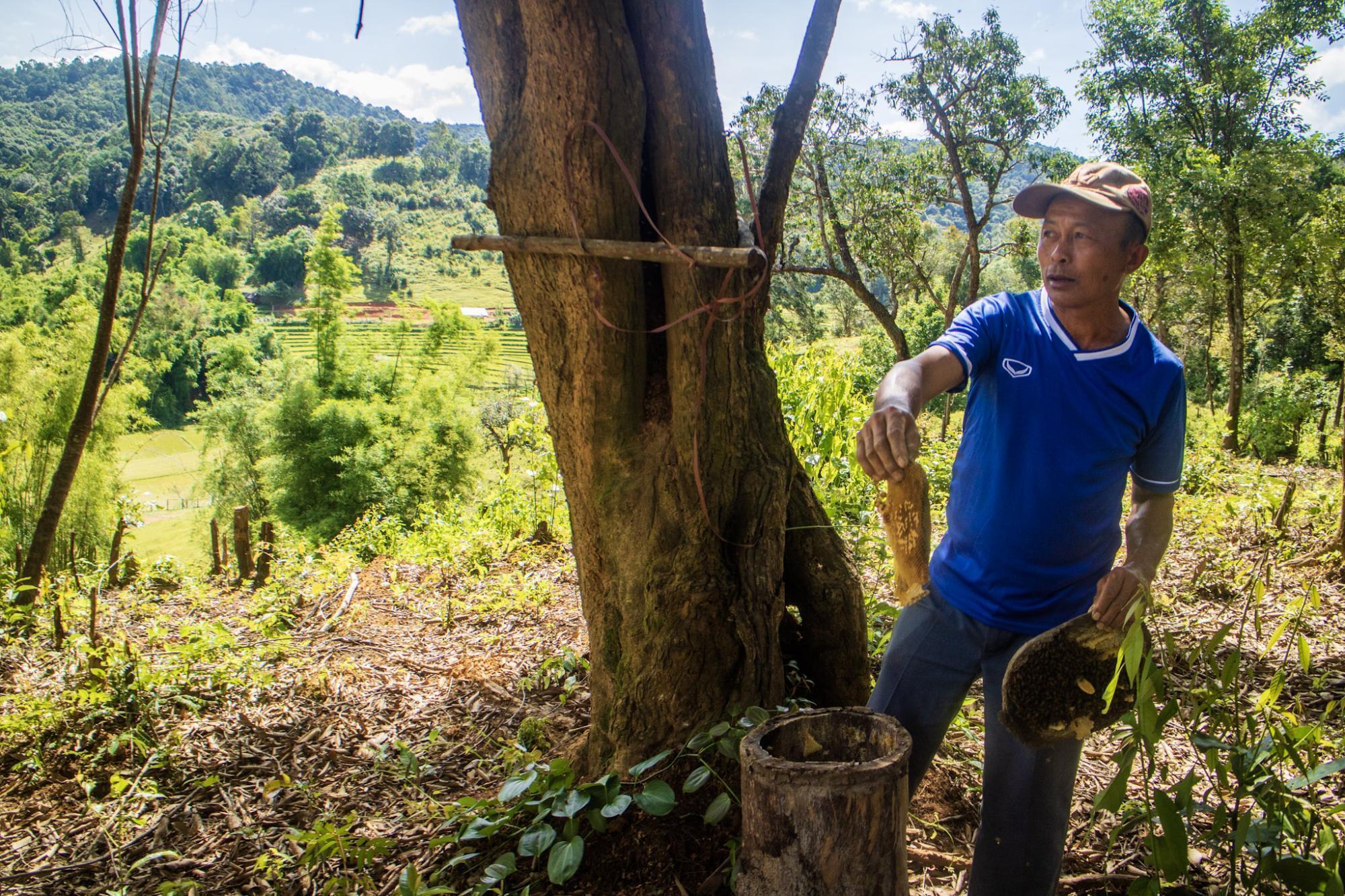Peace is More than a Wish in a Field of Bees

“Taste and see that the Lord is good.” That line from Psalm 34:8 that has been running through my head for the last few months. It helps that I have been travelling again, eating delicious and new-to-me food in different parts of the world. Each time I try something, even if I don’t like it, I have a chance to reflect on the creativity of a God who has created so many ways to be human, to combine a few basic ingredients into an endless array of delicious.
Of course, in order to get there, I had to be willing to leave home, step into the unknown and try something new. How does that relate to conflict? My gut reaction when I think about conflict is often one of fear, with feelings associated with pain and discomfort. I’m afraid of being hurt. I’m afraid of hurting others. I wonder what is wrong with me or I blame others.
What would shift if we thought about conflict in a different way? Rather than a space of fear, can we see conflict as a way to experience God’s goodness?
I was recently on a work trip to Laos. Our hosts invited us to walk with them up a hill to visit their honey cooperative. As we walked, we started to notice bees. At first, there was one and then three, and then dozens of bees swirling through the air around us.
It takes so much discipline to let a bee, let alone multiple bees, land and crawl on your body, let alone your face. There was one moment when I had three bees on my eyelid and what felt like a million bees in my armpit. All I wanted to do was scream and flail and run.
When approaching bees, or rather, being approached by bees, the best response is counterintuitive. Instead of panicking, practice slow, gentle motions. Take deep breaths. Reframing is key. I had to keep reminding myself that the bees were not there to attack me, but were rather just being bees, curious and reminding us of their presence.
Walking through a field of bees is a practice similar to responding to conflict. The moment we view the bees as harmful and out for attack is the moment we start to respond in a way that gets us stung.
What would happen if we viewed conflict as a normal part of life? Because we are all different, we all have different perspectives. We aren’t always going to agree with one another. Conflict is the energy that is generated when different perspectives and experiences come together.
Instead of viewing conflict as threat, can we view it as an opportunity to learn something new, and to possibly even be transformed? That doesn’t mean it will be easy or comfortable, or even entirely safe, but lowering our own internal temperature when it comes to conflict will likely reduce our chances of getting hurt or hurting others.
Instead, focus on what could be waiting in the midst of conflict: honey! Because I was able to endure the bees, I got to eat the best honey of my life, right out of the comb on that Laotian hillside. The promise on the other side of the field of bees is worth it. In fact, I found that it was the paradox of going through the bees, of learning to put up with discomfort and to face fears that actually made the honey taste so sweet.
As the rest of Psalm 34 reminds us, the Lord is with us. We can rely on God to accompany us and give us strength in the midst of challenging situations. Over and over again in my conversations in Laos with MCC staff, I heard that being a peacemaker started with developing inner peace by being grounded in spiritual practices. That’s something we are going to keep exploring together. Part of that involves seeing conflict as something beautiful because of the promise of grace and goodness.
So, here is my invitation for this month: Come and taste. We might just end up praising, with honey dripping down our chins.
Reflection Questions:
Have you ever been in a situation like walking through a field of bees?
What are some spiritual practices that you engage in? How could those help when facing situations of conflict?
Action:
As you talk and eat together with family and friends this Christmas season, notice where you get uncomfortable when disagreement or conflict arises. What happens to your own reaction if you view this moment as an opportunity to learn something new about the people you care about?
Ordinary People of the Month

Meet some ordinary people just like you working for peace in their communities. The feature for this month is Laos!
Learn more about Khamsa Homsombath and his community in Laos.
Featured Resource

Want to dive deeper into peace skills with your community? Download MCC’s adult Sunday school curriculum, Peaceful Practices: A guide to healthy communication in conflict. It invites churchgoers to follow Jesus’ call to peacemaking through dialogue with each other.
This blog originally appeared on the Peace is More Than a Wish page.

